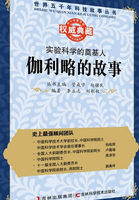(ll. 1-25) From the Heliconian Muses let us begin to sing, who hold the great and holy mount of Helicon, and dance on soft feet about the deep-blue spring and the altar of the almighty son of Cronos, and, when they have washed their tender bodies in Permessus or in the Horse's Spring or Olmeius, make their fair, lovely dances upon highest Helicon and move with vigorous feet.
Thence they arise and go abroad by night, veiled in thick mist, and utter their song with lovely voice, praising Zeus the aegis-holder and queenly Hera of Argos who walks on golden sandals and the daughter of Zeus the aegis-holder bright-eyed Athene, and Phoebus Apollo, and Artemis who delights in arrows, and Poseidon the earth-holder who shakes the earth, and reverend Themis and quick-glancing (1) Aphrodite, and Hebe with the crown of gold, and fair Dione, Leto, Iapetus, and Cronos the crafty counsellor, Eos and great Helius and bright Selene, Earth too, and great Oceanus, and dark Night, and the holy race of all the other deathless ones that are for ever. And one day they taught Hesiod glorious song while he was shepherding his lambs under holy Helicon, and this word first the goddesses said to me -- the Muses of Olympus, daughters of Zeus who holds the aegis:
(ll. 26-28) `Shepherds of the wilderness, wretched things of shame, mere bellies, we know how to speak many false things as though they were true; but we know, when we will, to utter true things.'
(ll. 29-35) So said the ready-voiced daughters of great Zeus, and they plucked and gave me a rod, a shoot of sturdy laurel, a marvellous thing, and breathed into me a divine voice to celebrate things that shall be and things there were aforetime;and they bade me sing of the race of the blessed gods that are eternally, but ever to sing of themselves both first and last.
But why all this about oak or stone? (2)
(ll. 36-52) Come thou, let us begin with the Muses who gladden the great spirit of their father Zeus in Olympus with their songs, telling of things that are and that shall be and that were aforetime with consenting voice. Unwearying flows the sweet sound from their lips, and the house of their father Zeus the loud-thunderer is glad at the lily-like voice of the goddesses as it spread abroad, and the peaks of snowy Olympus resound, and the homes of the immortals. And they uttering their immortal voice, celebrate in song first of all the reverend race of the gods from the beginning, those whom Earth and wide Heaven begot, and the gods sprung of these, givers of good things. Then, next, the goddesses sing of Zeus, the father of gods and men, as they begin and end their strain, how much he is the most excellent among the gods and supreme in power. And again, they chant the race of men and strong giants, and gladden the heart of Zeus within Olympus, -- the Olympian Muses, daughters of Zeus the aegis-holder.
(ll. 53-74) Them in Pieria did Mnemosyne (Memory), who reigns over the hills of Eleuther, bear of union with the father, the son of Cronos, a forgetting of ills and a rest from sorrow. For nine nights did wise Zeus lie with her, entering her holy bed remote from the immortals. And when a year was passed and the seasons came round as the months waned, and many days were accomplished, she bare nine daughters, all of one mind, whose hearts are set upon song and their spirit free from care, a little way from the topmost peak of snowy Olympus. There are their bright dancing-places and beautiful homes, and beside them the Graces and Himerus (Desire) live in delight. And they, uttering through their lips a lovely voice, sing the laws of all and the goodly ways of the immortals, uttering their lovely voice. Then went they to Olympus, delighting in their sweet voice, with heavenly song, and the dark earth resounded about them as they chanted, and a lovely sound rose up beneath their feet as they went to their father. And he was reigning in heaven, himself holding the lightning and glowing thunderbolt, when he had overcome by might his father Cronos; and he distributed fairly to the immortals their portions and declared their privileges.
(ll. 75-103) These things, then, the Muses sang who dwell on Olympus, nine daughters begotten by great Zeus, Cleio and Euterpe, Thaleia, Melpomene and Terpsichore, and Erato and Polyhymnia and Urania and Calliope (3), who is the chiefest of them all, for she attends on worshipful princes: whomsoever of heaven-nourished princes the daughters of great Zeus honour, and behold him at his birth, they pour sweet dew upon his tongue, and from his lips flow gracious words. All the people look towards him while he settles causes with true judgements: and he, speaking surely, would soon make wise end even of a great quarrel; for therefore are there princes wise in heart, because when the people are being misguided in their assembly, they set right the matter again with ease, persuading them with gentle words. And when he passes through a gathering, they greet him as a god with gentle reverence, and he is conspicuous amongst the assembled: such is the holy gift of the Muses to men. For it is through the Muses and far-shooting Apollo that there are singers and harpers upon the earth; but princes are of Zeus, and happy is he whom the Muses love: sweet flows speech from his mouth. For though a man have sorrow and grief in his newly-troubled soul and live in dread because his heart is distressed, yet, when a singer, the servant of the Muses, chants the glorious deeds of men of old and the blessed gods who inhabit Olympus, at once he forgets his heaviness and remembers not his sorrows at all; but the gifts of the goddesses soon turn him away from these.















